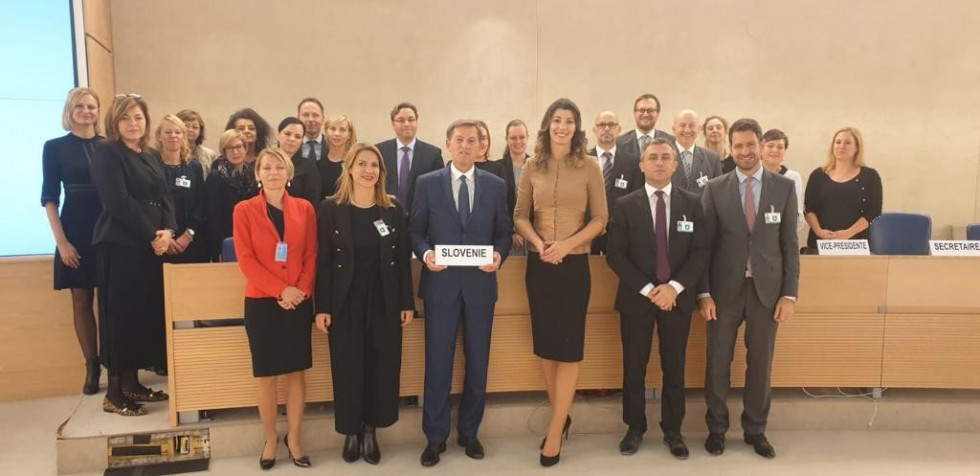Slovenia commended for progress in human rights protection
The other countries largely praised Slovenia highly for implementing fully 138 of the 142 recommendations that it had received in the previous round.
In his address Mr Cerar emphasised that Slovenia puts upholding, protecting and enforcing human rights high on its list of priorities, which is thoroughly demonstrated both at home and internationally. Human rights are a foundation and a prerequisite for global peace and stability, and Slovenia therefore sees them at the very heart of preventive diplomacy. According to Mr Cerar, the universal periodic review is thus an important mechanism, and should be recognised as an achievement of international dimensions, and the result of effective multilateralism.
In three hours of interactive dialogue the Slovenian delegation gave a progress report on the state of human rights in Slovenia, and answered questions on these issues raised by other countries. A total of 84 countries participated in the dialogue with Slovenia, and were particularly appreciative of its progress in strengthening its national institutions for protecting human rights, namely the human rights ombudsman and the advocate for the principle of equality, and its adoption of national action plans for women, peace and security and for human rights in commerce. Slovenia also received praise for its progress in protecting the rights of older people, gender equality, children’s rights, access to healthcare, the position of minorities, and migrants’ rights.
The increased protection of migrants’ rights, measures in the area of hate speech and non-discrimination, and better protection of rights for Roma were some of the issues covered by the recommendations by other countries.
In his closing speech Mr Cerar emphasised that Slovenia will remain committed to the highest standards of human rights, including in gender equality and in strengthening the power of women. It will also commit itself to the right to a healthy environment. “We will work to put in place a new legal instrument to better protect the rights of older people, and to encourage education and training in the area of human rights. We will also commit ourselves to defending vulnerable groups and to speaking in support of human rights advocates. And we will do our utmost in helping to create a world in which every individual can have a successful future,” Mr Cerar said in conclusion. In his address he announced that Slovenia will stand again as a candidate for the UN Human Rights Council for the 2026 to 2028 term.
Slovenia will receive its recommendations in the next few days, and will need to fix its position on them by the time of the next meeting of the UNHRC in March 2020.


